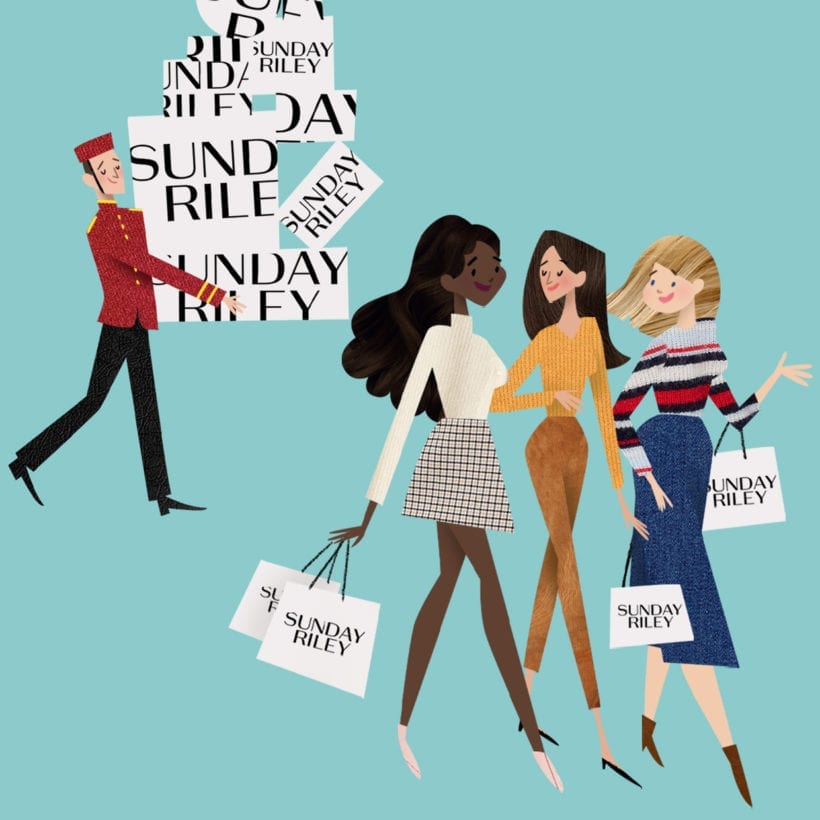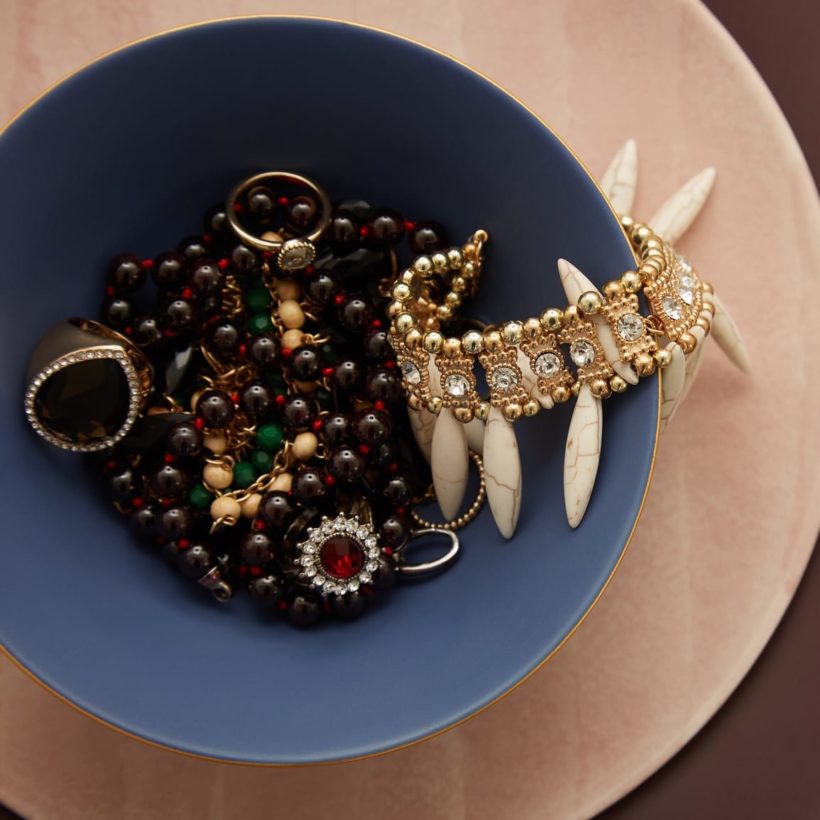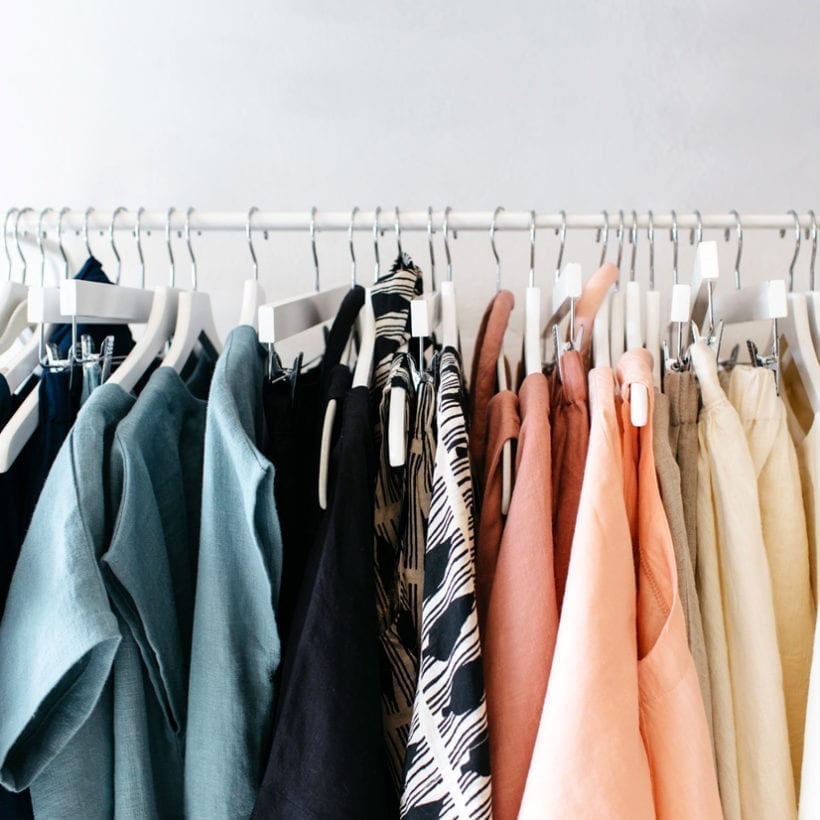Marilyn Loden coined the phrase “glass ceiling” in 1978, but more than 40 years later, that invisible barrier to success that many women — and particularly women of color — face in their careers is still, unfortunately, an ongoing issue. As we inch closer to equity becoming the norm one day, it’s important in the meantime to continue to lift up minority voices and spotlight their journeys to strengthen the movement. Read on to celebrate a few of these Black women who have overcome adversity to start their own companies and learn from the challenges they’ve faced, plus the career advice they have for other budding entrepreneurs.
Lisette Scott, founder of Jam+Rico
Harlem-based jewelry brand Jam+Rico (short for her native countries, Jamaica + Puerto Rico) was created in 2016 by founder and designer Lisette Scott to evoke a sense of joy and confidence in anyone who wears one of her Caribbean-inspired pieces. “I worked in the apparel industry for eight years before starting my own business. In most of my jobs, I was one of the few Black designers to be hired. Working in corporate environments, I often was overlooked for many opportunities and felt my differences were not embraced or seen as assets. This constant feeling of fitting in is what led me to create a change in my world and start my own business. Once I set my mind to starting Jam+Rico, I knew I wanted a business to reflect my culture and embrace my differences. We have always used models of color and recently have pushed to use models from the islands we visit and base each collection. My hope is that people will be able to connect to the Caribbean through our brand as we highlight the beauty of the people who live there,” she says.
Her career advice: “Often the biggest hurdle that entrepreneurs face is self-doubt. You will have good days and bad ones. There are many times I will second guess my designs or hesitate many business decisions, but I have to constantly remind myself to believe in myself. If you have a dream try to make that dream happen. At least you can look back and say, ‘I tried to make it happen.’”
Maya Madsen, founder of Maya’s Cookies
Encouraged by friends and family when her homemade cookies were a hit at birthday parties, Maya Madsen started her San Diego-based company in 2015 and quickly became a fan favorite for her unique, entirely vegan concoctions. “I am excited that now is the time where Black-owned businesses are getting the recognition they deserve. With this increased attention to maintaining diversity, it allows small Black-owned businesses to link together to create a stronger community in the present and a more equitable world for future generations. I am all about reinvesting in my community. It’s not just about my success, it’s about sharing that success with my peers, vendors, suppliers, and fellow entrepreneurs. It brings me such pride to know that I can contribute to building a stronger community,”she says. “I’m a big believer in allowing all boats to rise, our social media manager coined the phrase, “When Maya’s Cookies succeeds, we all succeed” since so much of my business revolves around collaboration with other small businesses while also maintaining a philanthropic mindset, especially when it comes to supporting underserved communities, especially youth in the foster care system”.
Her career advice: “First, believe in yourself. Keep pushing past setbacks. Second, be prepared, do your homework, and know what resources are available to you. Find mentors and other people you respect to serve as counsel and a sounding board.”
Naj Austin, founder of Ethel’s Club
Ethel’s Club, based in Brooklyn, New York, came to fruition in 2019 as a social and wellness platform that centers and celebrates people of color through community, arts culture and wellness. “I started Ethel’s Club because I was looking for a place where I could ‘no-pressure’ network with others, attend events where I always felt seen and support Black-owned creators. That place didn’t exist — so I built it,” she said. “Since COVID-19 hit, we’ve rebuilt Ethel’s Club as an online platform with daily events, clubs, and community conversations for people of color, making it a unique one-of-a-kind space on the internet.” As a Black businesswoman, she had to rise above challenges: “The oppressive systems we work within were not built for us to thrive. Through navigating success in a world designed for me to fail, I’ve learned to be very intentional about who we brought into the company as investors, advisors and teammates.”
Her career advice: “I think it’s important to tune out the noise and focus on what you’re building. There’s a lot of noise, especially with social media and everything living online right now — I believe the key to having ownership over what you’re building is being able to keep your vision and purpose clear, despite what the world may say is or isn’t possible.”
Chauniqua Major-Louis, founder of Major’s Project Pop
For more than a decade before starting her kettle popcorn company in Sandor-Orlando, Florida, Chauniqua Major-Louis worked in marketing and worked alongside some of the best chefs in the country helping them open restaurants, explore food trends and develop products. “I have a heart for connecting with people and popcorn is one of the many conduits I use to do so — and it makes me feel good about a snack to feed my nieces,” she says.
As she enters 2021, “I’d love to lean into mentorship and engaging more on platforms to encourage anyone that I can. Go ahead and email me if you have questions about your career. We all need a faith booster, and I’d love to be that person for as many people as possible.
Her career advice: “Surround yourself with a tribe of people that believe in you, challenge you, and motivate you to keep going. Don’t spend so much money getting started. I created my website and logo and I’m still using the same ones today. Trust me, I want to upgrade, but I’m sharing this to encourage you to just get started. You don’t have to be the smartest. You don’t have to have the most money. You just need to have faith, a commitment to learn, and the ability to bounce back after failing numerous times.”
Valerie Madison, founder of Valerie Madison Jewelry
Before designer Valerie Madison started her Seattle-based jewelry company in 2014, she enjoyed it as a hobby from her bedroom. “I was always picky about my jewelry and had the itch to fix the styles I saw to make them more ‘me.’ I thought what better way to achieve this by doing it on my own for myself,” she says. “One of my biggest challenges, when I started out, was having access to funds or knowledge about how to run a business in general, let alone a fine jewelry business. Growing up in a mixed-race family (Black and Mexican) often hovering just above the poverty line, my family didn’t have the privileges and opportunities for building savings to help me start out and I was not exposed to fine jewelry or any industry involving luxury fine goods. I’ve worked hard to learn how to run a solid business and I’ve bootstrapped my way through this entire experience and I feel it’s made me stronger and more confident in my abilities.”
Madison is hopeful for the future of brands and companies championing diversity, but she wants to make sure it’s not a momentary trend. “If you take the jewelry industry, for example, it was long oversaturated by light-skinned hand models and I recognized from the get-go that I had a responsibility to use my own hands in my own jewelry photography to positively change people’s perceptions of fine jewelry and who should be wearing it. It is now becoming more common to see darker-skinned models in fine jewelry, which I have been delighted to see, but I hope it’s a change that is here to stay.”
E
Her career advice: “Always go one step further than you need to. As a Black woman, I have always put pressure on myself to go above and beyond because I set a high bar for myself plus I know I’m representing my Black and Latina communities. Women of color need to push a little harder and speak a little louder but the work is worthwhile.”
Katonya Breaux, founder of Unsun Cosmetics
When Katonya Breaux couldn’t find a sunscreen suitable for her skin type and tone, she created her own. In 2016, the Los Angeles cosmetics company launched with clean suncare ingredients that work for brown skin. “I created Unsun products for people who look like me and want to be protected from the sun. I am very passionate about my brand being cruelty- and chemical-free. Not too many women of color are in clean beauty, so it’s a rewarding challenge,” she says.”
Her career advice: “Just go for it! If you are truly passionate about what you are doing, success will find you.”
Courtney Williamson, Ph.D., CEO and founder of Abililife
The inspiration behind starting her Pittsburgh-based brand in 2014 that creates products for neuromuscular and elderly patients was a personal one: “My mom, Antoinette Williamson, had Parkinson’s Disease for 25 years. She had trouble sitting and standing up straight because of her disease, so I decided to make her a product to alleviate her discomfort. Thus, Calibrace+ was developed. It’s a patented back brace with a pulley tension system that lifts the shoulders up and back for total torso support.”
At the time, Williamson was working with a startup incubator program at Carnegie Mellon University where she was a Ph.D. student at the time. “One of the challenges that I find with our supremacist society is the amount of funding that Black women receive in comparison to our white counterparts, despite our incredible skills and accomplishments.”
Her career advice: “Don’t give away your equity! I know it is tempting to pay team members and contractors in equity, but please treat your company as if it is worth $100M right now. When you look at your company in that light, you can avoid the risk of overpaying for services and work. Be creative in compensating your team, but please be mindful of your equity.”
Uchenna and Chioma Ngwudo, co-founders of Cee Cee’s Closet
Sisters Uchenna and Chioma Ngwudo left their corporate jobs and began Cee Cee’s Closet in 2015 because they wanted to make high-quality, African-made clothes and accessories to be easily accessible to people in NYC — and around the world. “It was hard to get recognition though as people of color. Even though we spent a lot of time and money on getting media coverage, we didn’t get featured in a top tier fashion magazine until 2020’s Black Lives Matter movement kicked off,” says Uchenna Ngwudo. “Statistically, it’s harder for people of color to get access to the capital they need to scale their business. This has been a challenge that made bootstrapping Cee Cee’s Closet NYC our only choice.”
Her career advice: “Build your network. I’ve learned a lot from my peers who are experiencing the entrepreneurship journey with me. You can network upwards to learn from people’s previous experiences. You can network across for tips, encouragement, and new opportunities. Build a connection with your audience. Make sure your content focuses on the needs and interests of your target audience. Take advantage of social media tools like live streaming to give your audience an authentic view of your experience as an entrepreneur. Lastly, plan to succeed. The easiest way to meet your goals is to plan for success. You don’t necessarily have to plan out every nitty-gritty detail but you should map out how you plan to reach your goals.”







